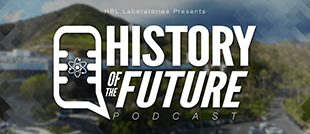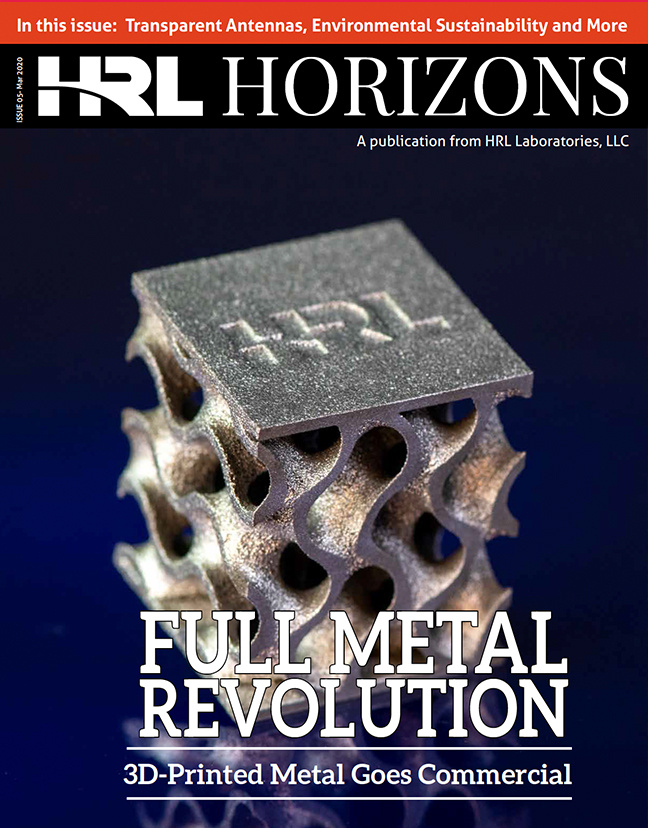HRL’s History of the Future Podcast Episode 003: Dan Sievenpiper

In our third episode of HRL’s History of the Future Podcast we speak with Dan Sievenpiper, a whiz-kid scientist who invented the high-impedance electromagnetic surface while he was an engineering grad student at UCLA.
Skills and Learning Improved by Closed-Loop Electrical Brain Stimulation During Sleep

HRL Laboratories publish the first study using closed-loop slow-wave transcranial alternating current stimulation (tACS) of the brain during sleep to increase human subjects’ ability to generalize experience in a target detection task, improving overnight performance change for novel situations by about 48%.
All-Memristor Architecture Could Enable Brain-Like Computers

HRL Laboratories, LLC, will leverage electronic brain-cell technology for a new computer architecture that promises more compact, energy-efficient, and capable systems. The program is part of the Defense Advanced Research Projects Agency program Foundations Required for Novel Compute (FRANC).
STELLAR System Will Enable Autonomous Systems to Learn for Life

HRL Laboratories, LLC, joins DARPA’s Lifelong Learning Machines (L2M) program to develop a breakthrough in machine-learning architectures for autonomous systems that will continually improve performance and update their knowledge based on experience, without human supervision.
HRL Employees’ Experience Touches Down on Mars

Before they were at HRL Laboratories, staff member Kayleigh Porter and intern Victor Ardulov worked on technologies for NASA’s Mars Curiosity rover that is currently exploring the surface of Mars. Porter 3D-printed ceramic parts for Curiosity’s SAM suite of tools and Ardulov was an undergrad intern at NASA’s Jet Propulsion Laboratory working on a virtual reality tool for mission planning.
Aligning Nanoparticles to Create Dense Materials

HRL Laboratories has successfully demonstrated a scalable, water-based nanoassembly manufacturing technique with many possible uses, including growing powerful rare-earth-free magnets and infrared optical materials. The new method is a bench-top task and is scalable to industrial manufacturing volumes.
A Step Toward Revolutionary Computing by Improving Topological Material

HRL Laboratories, LLC, hopes to advance the vast potential of two-dimensional topological materials for quantum computation. With an award from DARPA, this project—Suppressing Trivial Edge Conductance in 2D Topological Materials—will take a step closer to development of topological qubits that keep fragile quantum information safe from environmental effects.
3D Printing of Metal Matrix Composites Opens World of New Design Possibilities
Setting another new milestone in metallurgy, scientists from HRL Laboratories have used their breakthrough process to 3D print metal matrix composite (MMC) parts utilizing a new nanofunctionalization process.
The ExACT Tools for Safe Autonomy

HRL Laboratories, LLC, will join the Defense Advanced Research Project Agency (DARPA) in its Autonomy Assurance (AA) program with the Expressive Assurance Case Toolkit (ExACT), a set of algorithmic tools that will mathematically verify that the autonomous driving system’s algorithms are correct and safe.
HRL Laboratories Wins 2018 Silver Edison Award in 3D Printing Category

HRL Laboratories, LLC, has been won the silver medal in the Applied Technology/3D Printing category of the 2018 Edison Awards for their work in microstructure control of 3D printed materials.

